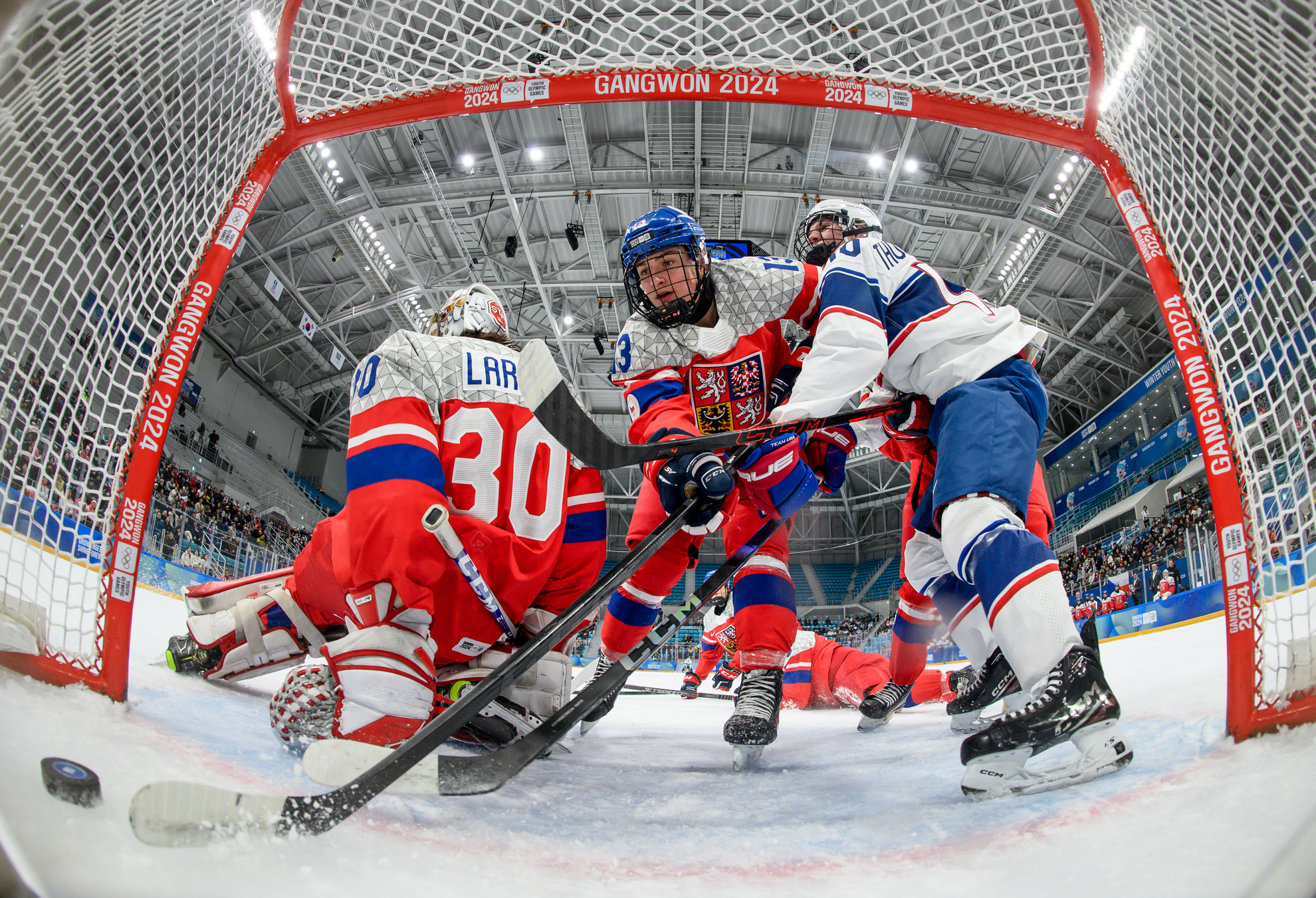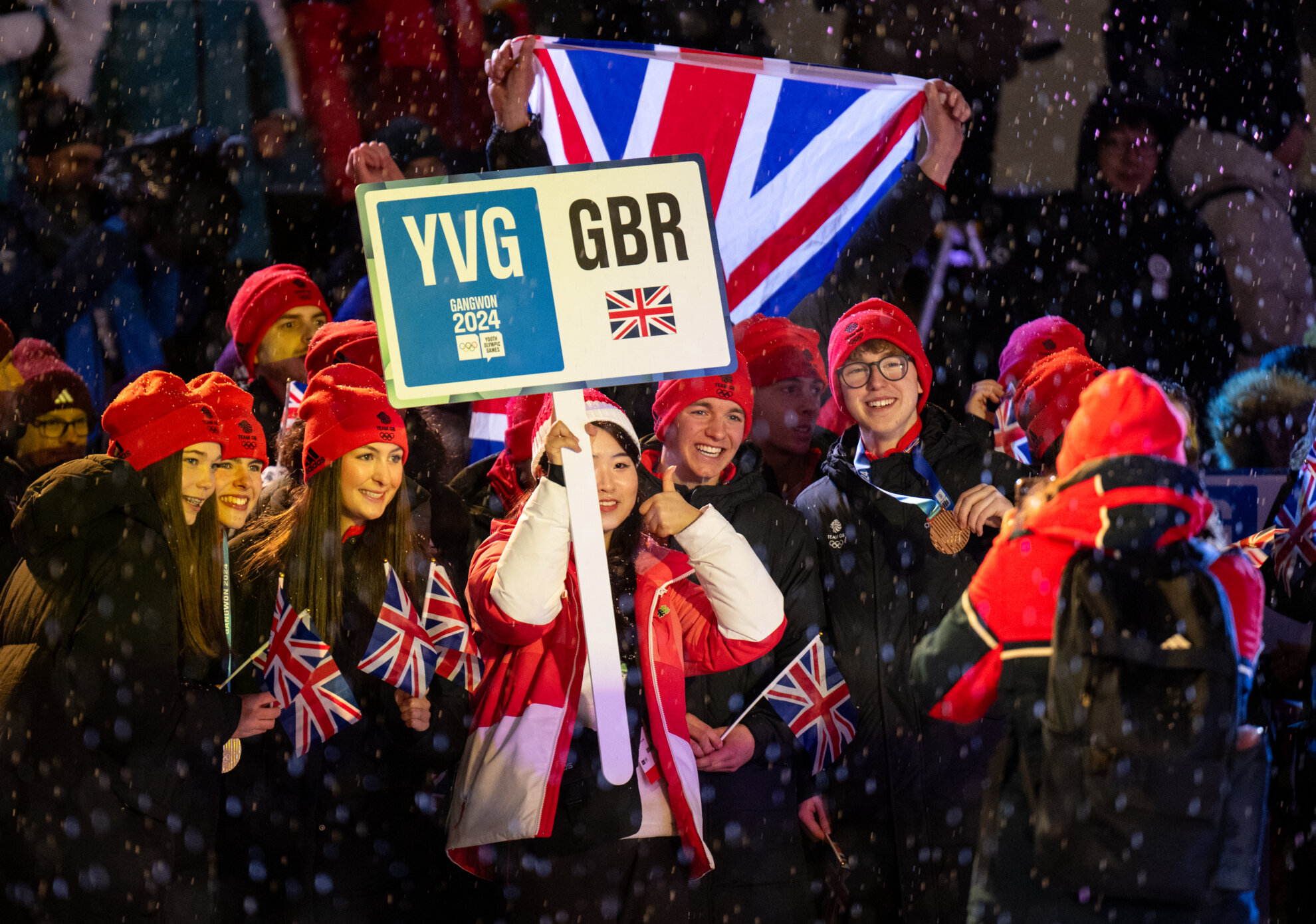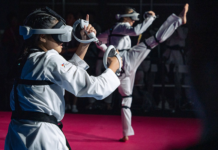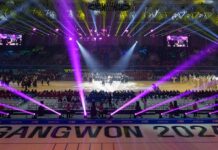
The preliminary round of men’s six-on-six ice hockey on Jan. 29 pits the Czech Republic against the U.S. at Gangneung Hockey Centre as part of the Gangwon Winter Youth Olympics in Gangwon-do Province.
By Kim Hyelin
Photos = Olympic Information Services of International Olympic Committee
The Gangwon Winter Youth Olympics (Gangwon 2024) on Feb. 1 ended its 14-day run with its closing ceremony at Gangneung Hockey Centre in Gangneung, Gangwon-do Province.
As the first Youth Winter Olympics to be held in Asia, Gangwon 2024 carried on the legacy left six years earlier by the 2018 PyeongChang Winter Olympics. Through pan-government operation and support from the Ministry of Culture, Sports and Tourism, Gangwon-do and Gangwon 2024’s organizing committee, the Games went smoothly without major incident.
To save expenses, the competition used facilities from the 2018 Winter Olympics.
“Based on the legacy of the PyeongChang Winter Olympics, we didn’t build a single event facility and 100% reused existing ones,” said Kim Chul-min, secretary general of the organizing committee. “Our budget for this tournament was KRW 96.7 billion, or just 3.5% of that of the PyeongChang Winter Olympics (KRW 2.79 trillion).”
Through this competition, youth athletes who had competed before can expect major progress when they go for the regular Olympics. Dutch speedskater Angel Daleman, German speedskater Finn Sonnekalb, French biathlete Antonin Guy and Austrian Alpine skier Maja Waroschitz each won three gold medals at Gangwon 2024.
The competition saw far more visitors than expected. The committee said some 270,000 people visited the competition facilities and 230,000 cultural events for a combined 500,000, double the goal of 250,000.
Athletes trained by New Horizons Academy, which trains athletes from underdeveloped economies in winter sports, also impressed at Gangwon 2024. Through this academy, the ministry and PyeongChang 2018 Legacy Foundation invited youth athletes from countries where the climate makes training in winter sports hard and supported their training in Gangwon-do.
Twenty-five academy participants from nine countries competed in Gangwon 2024. Among them, Jonathan Lourimi of Tunisia clinched the silver in men’s monobob (single-person bobsleigh) while Agnese Campeol from Thailand won the silver in women’s monobob.
International Olympic Committee President Thomas Bach said in a post-competition briefing that the athletes and the Olympic family felt “great satisfaction” at Gangwon 2024.
“We saw state-of-the-art facilities and athletes enjoying competing in these venues, where they saw their Olympic idols winning medals six years ago,” he said. “These (Youth Olympic Games) have been a great demonstration of Olympic hard and soft legacy of the very successful PyeongChang 2018.”
He also thanked volunteers for their hard work, saying, “It is really an incredible experience to see each and every one of these volunteers, always with a smile on their face and ready to assist, supporting the success of these Games.”

Athletes from the U.K. on Feb. 1 pose for a photo ahead of Gangwon 2024’s closing ceremony in the athletes’ village in Gangneung, Gangwon-do Province.
kimhyelin211@korea.kr























